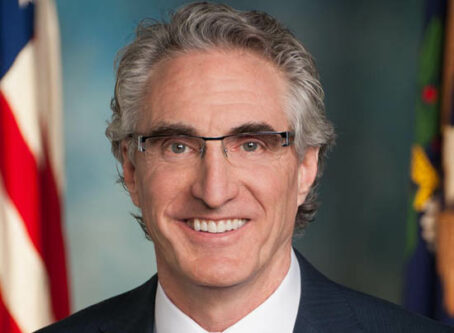States continue fuel tax relief efforts
Efforts to help motorists and professional drivers cope with high inflation by providing some relief at the fuel pump continue in states around the country.
Fuel tax holidays that include diesel have had truck drivers asking what a tax break means for paying their taxes through the International Fuel Tax Agreement.
IFTA Executive Director Carmen Martorana previously told Land Line Media that drivers wouldn’t have to pay state fuel tax if they are buying and burning the fuel in a state that is not collecting the tax.
Martorana said that drivers who buy fuel in a state with a fuel tax exemption and drive in a state without an exemption, drivers would have to pay that tax out of pocket.
He added that if a driver pays taxes on fuel in one state but then drives in a state that has a tax holiday, they can get reimbursed.
Below is a rundown of state tax holidays that continue for gas and/or diesel.
Georgia
An eight-month fuel tax holiday for gas and diesel purchases is set to conclude by the end of this week.
Originally approved in March by state lawmakers and Gov. Brian Kemp, the state ceased collection of the 29.1-cent gas tax and 32.6-cent diesel tax.
The governor said at the time the state is in a good position to provide a tax break because of a $3.7 billion budget surplus through fiscal year 2021.
Since then, Kemp has issued six executive orders to extend suspension of fuel tax collections. The most recent executive order calls for a fuel tax holiday for gas and diesel purchase through Sunday, Dec. 11.
The governor’s office reports that Georgians have saved about $950 million at the pump since the state fuel taxes were suspended in March.
The state has made available information for truck drivers on IFTA’s return filing guidance.
New York
Since June 1, the state of New York has provided some tax relief for motorists and truck drivers.
The Empire State charges about 33 cents per gallon for gas and diesel. There are multiple components that make up the state’s fuel tax collection.
There is an 8-cent excise tax and a 17.3-cent petroleum business tax. Additionally, there is an 8-cent state sales tax.
A budget deal reached this spring between state lawmakers, and Gov. Kathy Hochul set the stage for fuel tax collection to be trimmed by 16 cents per gallon. Specifically, excise tax and state sales tax collection were suspended through the end of December.
New York’s excise tax and the sales tax raise about $485 million each per year.
The tax break is estimated to cost the state $585 million in lost fuel revenue.
The New York Department of Taxation and Finance has made available information for truck drivers on IFTA and the fuel use tax.
Connecticut
In Connecticut, an initial three-month holiday from paying the state’s 25-cent excise tax on gas has turned into a nine-month break. The tax holiday does not affect the 41.1-cent excise tax on diesel.
Since April 1, motorists in the state have not paid the 25-cent excise tax on gas.
Gov. Ned Lamont has acted twice since then to extend the cost savings through the end of the year. Starting Jan. 1, the quarter tax will be phased in over time.
At that time, the tax will be set at 5 cents per gallon. Additional nickel increases are planned to take effect monthly until the full 25-cent rate resumes May 1.
The governor’s budget office has reported that the state’s special transportation fund is on pace for a $150 million surplus, which will absorb the continued tax holiday.
While Connecticut motorists are getting a break on gas expenses, it is business as usual for how the state treats professional drivers.
On July 1, the state implemented a regularly scheduled adjustment to the diesel tax. As a result, the then-40.1-cent excise rate increased by 9 cents to 49.2 cents per gallon.
Diesel in the state is taxed following an annual formula that includes a fixed base and an adjustment that accounts for the average wholesale diesel prices from the prior year. LL
Land Line Now Senior Correspondent Ashley Blackford contributed to this report.
More Land Line state news is available here.









